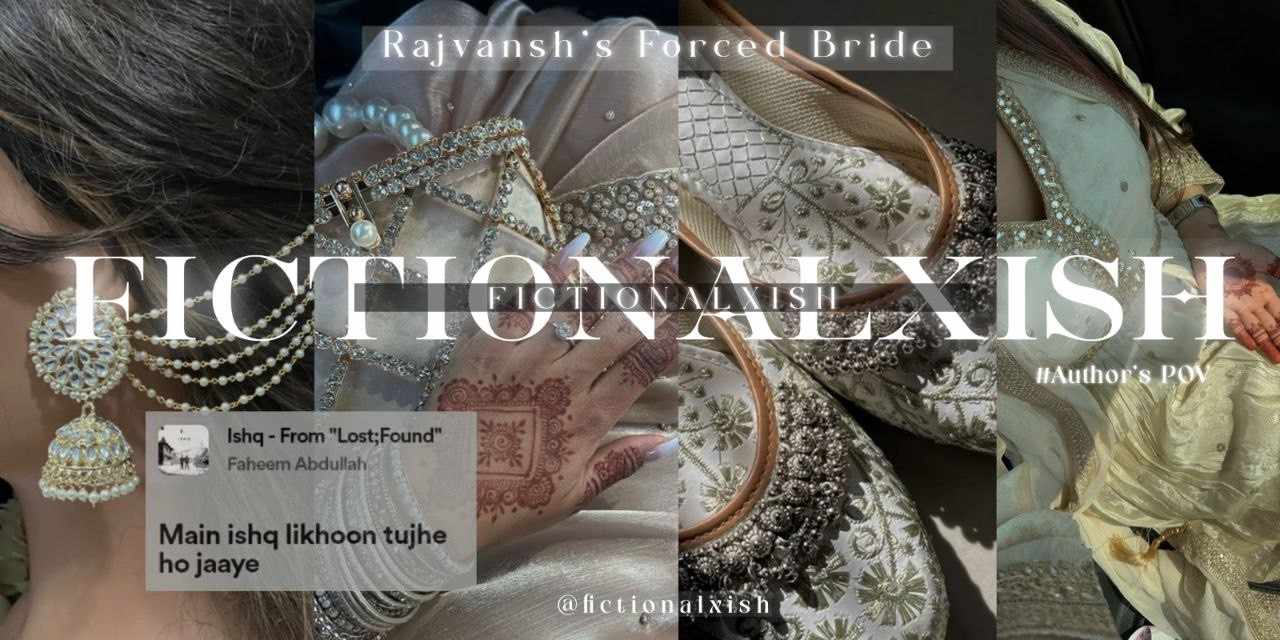
The war was over.
But peace had not returned with it.
Smoke still clung to the skies like a mourning veil. The wind still carried the scent of death—burned flesh, rusted steel, and the lingering grief of mothers who would never again braid their sons' hair but Rajgarh did not rejoice. Its gates, carved with the triumphs of kings long dead, stood open in a silence more brutal than war drums. No cheers. No garlands. No songs. —stood silent as stone, awaiting the return not of a hero, but a madman.
They had not forgotten who their king was.
Rudraksh Rajvansh—the Mad King, the Luniac, the man who once painted blood on canvas like a poet with ink—was returning home. He had been called a monster, a god of ruin, a man who waged wars not for land or vengeance, but simply because peace bored him.
One could say His enemies feared his madness. His allies feared his boredom. For him, he did not rage to conquer—he raged to feel.
And yet today, he returned with no victory in his eyes.
This time, his hands were not stained with conquest, but consequence.
The earth had swallowed too much blood to ever grow wildflowers again.
It was not a war Rudraksh had won. It was a wound he had chosen to wear.
They passed through the capital—where children peered from doorways and old women clutched their beads. Where nobles whispered and servants stilled. Where nothing moved, save the wind and the wheels.
He walked beside a chariot.
Not leading it. Not riding within it.
Walking beside it—as if in mourning.
Inside the chariot sat a woman. Silent. Veiled. Still.
She was not a princess of Rajgarh. She was not a bride brought home in celebration. She was the last price of a war that should not have been.
The people knew her—though not like this.
A woman, veiled and unmoving, wrapped in a silence heavier than any crown. No jewels adorned her forehead. No anklets sang with her step. And yet, dignity radiated from her like incense from a funeral pyre—slow, sacred, and unrelenting.
Her veil was translucent but thick enough to hide her expression. She did not glance outside, not even once. She had not spoken since the war ended, and the silence had calcified around her like bone.
And now... now he walked quietly.
Not inside the chariot.
Not ahead, as was his right.
He walked beside it.
As if escorting a funeral he himself had caused.
Gone was the golden armor he wore to battle. His robes were dust-soaked, his crown crooked, his hands stained—still, perhaps, with the blood of her kin. But for the first time, the madness in his eyes seemed... tamed. Not vanished, but chained to something heavier than desire.
As they entered the capital, the people did not cheer. Some bowed. Most starred. A few wept.
What does a kingdom do when its king brings home a widow as queen?
They reached the palace at dusk.
The dying sun poured gold over the steps like spilled molten metal, but neither of them glowed in it. He turned toward the chariot as the wheels stopped. She still did not move.
He did not command.
Instead, he stepped forward—quiet, reverent—and extended his hand.
An offering.
A bridge.
A crime begging to be forgiven.
She didn't look at him. But she saw.
The hesitation in her silence.
The ghost of defiance in her stillness.
And he, who had demanded the surrender of empires, said nothing more—except "Yeh haath ek shauk nahi... ek zimmedari hai. Thukra dengi toh bhi, zindagi bhar yeh haath kisi aur ke liye nahi badhega."
(This hand is not offered for pleasure, but out of duty. Even if you refuse it, it will never again be extended to another.)
A declaration not made on battlefields—but at their ruins.
Her hand rose slowly, like something resurrected. Fragile. Unwilling. But it rose.
And as her trembling fingers touched his calloused palm, the entire court exhaled—some in disbelief, some in dread, but none in joy.
He did not tighten his grip.
He simply received it.
And as she descended from the chariot, barefoot, unadorned, draped in widow's white, she stepped not as a queen would—but as a question.
A storm in human skin.
An unspoken curse.
The throne awaited. But she did not glance at it.
She stood beside him, eyes hidden, hands still in his, spine unbending.
And Rudraksh—the Mad King, the lunatic, the tyrant—lowered his gaze. Not in shame, but in recognition.
For this was no act of madness.
He had not conquered her.
He had crowned her.
And the kingdom finally understood:
He was not causing a war this time.
He was doing something far more dangerous.
He was bringing home his ruin.
And giving it a crown.
But The palace, once echoing with power, now whispered of ghosts.
Its walls bore the scent of old incense and older sins. The arches remembered laughter that had long vanished, and the courtyards stood still—waiting, always waiting—for joy that no longer returned
Rudraksh Rajvansh crossed its marbled halls like a shadow returning home. The weight of his silence followed him like a second crown—heavier than the one forged from gold.
Servants froze at his presence. Guards lowered their heads. Even the wind seemed to hush itself as it passed through the latticed corridors, wary of disturbing the storm that lived behind the Mad King's eyes.
But the storm did not speak.
At the turn of the east wing, a young messenger approached, breathless and pale, eyes darting between the king and the veiled woman beside him.
"Maharaj," he stammered, "Rajmata has summoned an emergency meeting."
Rudraksh did not flinch. He gave a small nod, his expression unreadable.
Then he turned, slowly, toward the woman by his side—his queen of ashes, the stranger fate had carved into his future. Without a word, he guided her down a quiet corridor, each step echoing like a heartbeat through stone.
The chamber he opened for her was unlike any other in the palace.
There were no tapestries of victory, no silken canopies of crimson and gold. No bridal bed adorned with garlands, no perfumes waiting in crystal flacons. Instead, the room held stillness and solitude.
Bookshelves lined the walls, their contents worn and loved—histories, philosophies, forbidden verses. Canvases leaned against corners: half-finished portraits, wild abstractions, bleeding skies, screaming rivers. And at the far end, a single arched window stood half open, letting in the scent of roses.
Wild roses. Untamed. Blooming defiantly against the disciplined palace gardens.
A room that did not welcome. But did not cage.
She stepped inside slowly, as if unsure whether this space was a gift or a punishment.
The silence between them bloomed like the roses outside—gentle, thorned, bleeding.
Then, from behind her, his voice reached her. Quiet, reverent, almost prayer-like.
"Yeh aapka kamra hai. Aapki raza ke bina, main is darwaze ke andar bhi kadam nahi rakhunga."
(This is your room. Without your consent, I will not set foot past this door.)
She turned at last.
For the first time since their return to Rajgarh, she looked at him—not as a king, not as a monster, but as a man.
Her eyes, veiled yet sharp, held questions. Not accusations. Not fear. Only the ache of something unspoken.
And Rudraksh, the king who had once painted battlefields with blood just to break his boredom, lowered his gaze before her silence.
He bowed. Not in submission. But in respect.
Then he turned and left, the door closing softly behind him, as if it too dared not disturb the boundary that had been drawn.



Write a comment ...